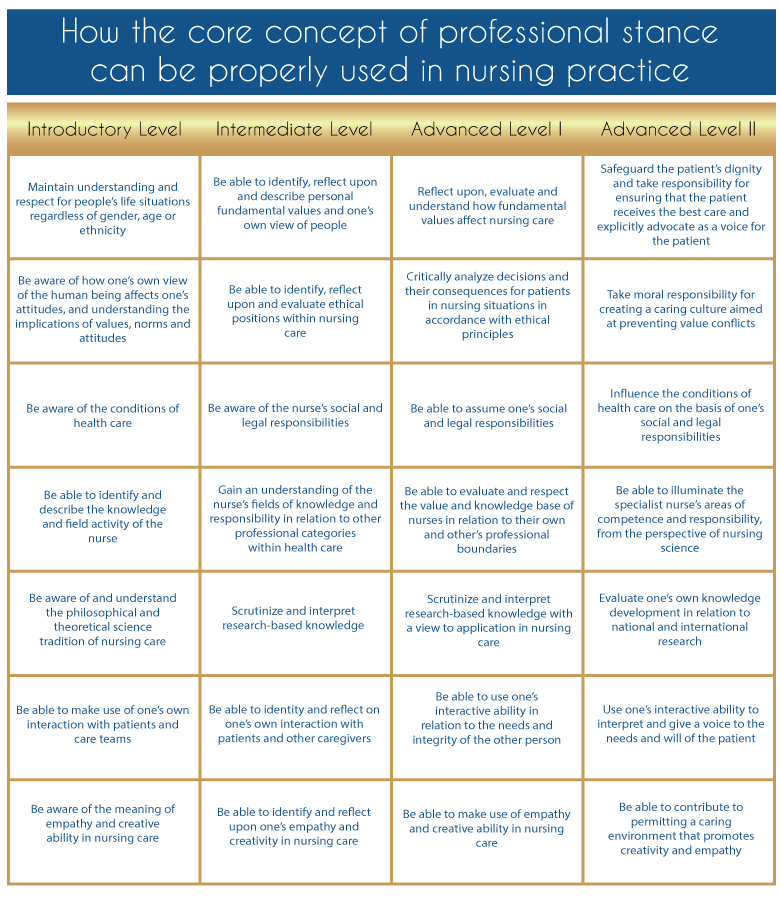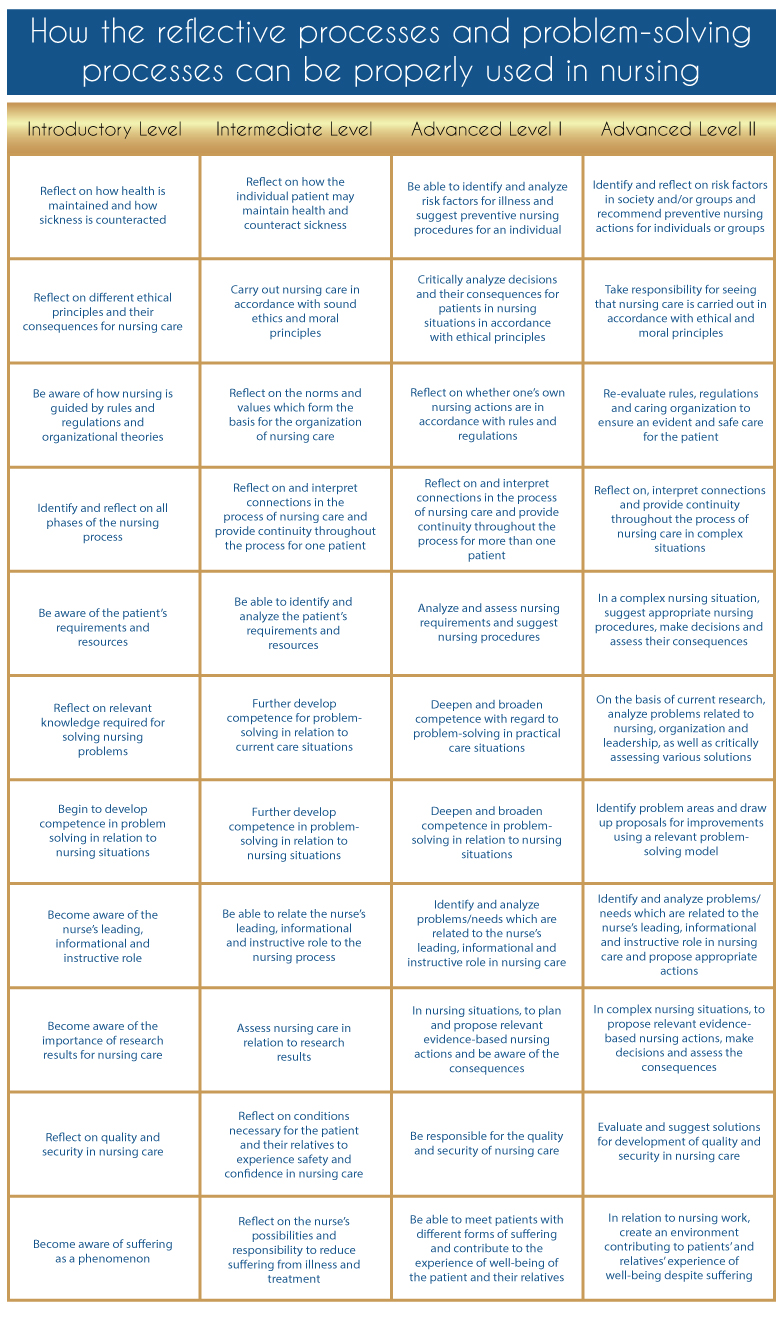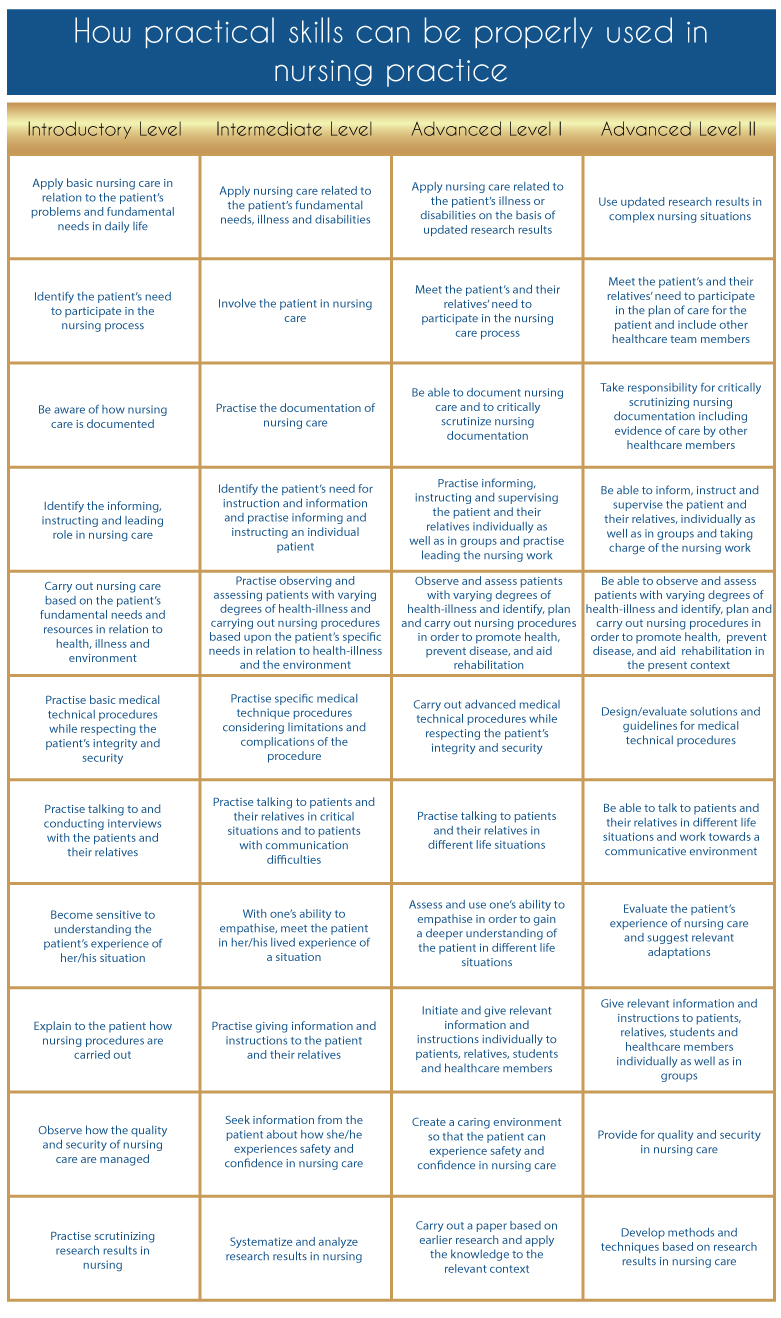Bridging the Gap between Nursing Theory, Research and Practice
| 7 Min Read
As a nurse grows personally and professionally in his or her career, it is essential to bridge the gap between nursing theory and research, and actual practice in the work setting.
An accredited nursing degree, like the ones Sacred Heart University offers, helps to develop and solidify the nurse’s competence and ability through key educational guidelines. This article walks you through a study that describes the key educational guidelines for the integration of theory, research and practice, incorporating the core concepts of professional stance, reflective processes, problem-solving processes and practical skills. The study further describes the competence expected at different academic levels, varying from the introductory level (associate’s) or advanced level (master’s or above).
Academic Nursing Education Guidelines
Nursing educators, nurse leaders and nurse administrators are some of the most in-demand professions in the country and choosing the right degree course will ensure you have the correct skills to teach the next generation of nurses. Clinical nursing education plays a crucial role in assisting nursing students to integrate theory, research and nursing practice, which is required for the bachelor’s degree as well as for further specialization and in-depth studies in advanced nursing.
An academic nursing program should produce independent and autonomous nurses with the ability to acquire, update and assimilate new knowledge, skills and attitudes. In their future professional lives as nurses, the students will be continuously faced with situations where they have to take ethically motivated and correct decisions and act in a professional way. This demands training in problem-solving, reflection, decision-making and use of both deductive and inductive learning strategies.
The article ‘Academic nursing education guidelines: Tool for bridging the gap between theory, research and practice’ for Nursing and Health Sciences (2003) focuses on the results of a study, which identified and analyzed the central concepts of the approach to caregiving using the Delphi technique to formulate the educational guidelines. (The Delphi technique has been described as ‘a method for structuring a group communication process, so that the process is effective in allowing a group of individuals as a whole, to deal with a complex problem’.)
The aim of the study was to develop educational guidelines to be used as a tool for the integration of theory, research and practice to ensure that nursing knowledge and practical skills form the basis of academic nursing education. An additional aim was to describe the nursing competence expected of the students at four academic levels: introductory, intermediate and advanced levels I and II.
Based on a literature review and collegial discussions, four core concepts emerged: professional stance, reflective processes, problem-solving processes, and practical skills, from which the general and abstract educational guidelines were developed.
The guidelines describe what is expected of the students in terms of nursing competence and personal qualifications to ensure that they will be ready to meet the demands of their future profession.
What was the theoretical background?
Clinical guidelines
Clinical guidelines underpinned by scientific evidence have been developed to support the implementation of evidence-based practice. The pedagogical contributions from the faculty and the nurse supervisors in clinical settings are aimed at supporting the student in operationalizing and individualizing the guidelines in relation to each student’s previous experience and knowledge. Practical knowledge is developed through critical reflection and problem-solving in close consultation with the patient and includes, besides theoretical knowledge, empathy and moral sensitivity.
Decision-making
Nursing education is both theoretical and practical. The student has the opportunity to apply theoretical knowledge to practical situations in the clinical part of their education. The final goal is a confident student, capable of independently making decisions and performing nursing activities towards patients, relatives and other health professionals. In order to attain these goals, actions should be preceded by clinical decision-making built on rational thought and moral judgment.
Clinical nursing supervision
The primary goal of clinical nursing supervision is to support the development of the supervisee’s job identity, competence, skills and ethics. Clinical supervision enhances nurses’ ability to provide care and forms the basis of their decision-making.
Reflection was reported to be one way of bridging the gap between theory and practice and demonstrated the need for an innovative approach to the provision of quality learning in clinical institutions. Moreover, it was found that continuous process-oriented group supervision increased nursing students’ attentiveness, empathy and insight towards patients, as well as providing them with feelings of security in their role as nurses.
Examination
Authentic performance-based assessment would aim to test the students’ capabilities of discerning and focusing on relevant aspects of various situations and their ability to handle those simultaneously in order to define and solve problems and make decisions in nursing care.
What were the findings?
Four core concepts: professional stance, reflective processes, problem-solving processes, and practical skills were identified and transformed into educational guidelines at four academic levels: introductory, intermediate and advanced levels I and II.
Professional stance
A professional stance is rooted in value-related philosophical assumptions that are specific to a profession. This means, among other things, that the professional activity is governed by unique knowledge as well as by professional codes of ethics. The nurse has an independent professional responsibility, a scientific base for the exercise of the profession. Nursing actions are based on a holistic and humanistic view of the human being. Development of the professional stance requires moral judgment as well as awareness of the autonomy of the nursing profession and its areas of knowledge and responsibility.

Reflective and problem-solving processes
Reflective and problem-solving processes have a trajectory consisting of different phases. In the first phase, the problem/situation is described and defined. The second phase is denoted as the analysis phase, where an understanding of the problem is sought. The third phase implies the decision-making process. The problem-solving model is used in relation to specific situations, information, instruction and leadership, to train and develop a student’s problem-solving ability in the complex reality of care.

Practical skills
Practice is practical actions in a real setting, and practical skills include the development of nursing methods and techniques. Each situation is, in practice, unique and connected to specific individuals at a given point in time and is the result of thoughts, values, feelings and judgments expressed in decisions and acts.

What are the implications for nursing education?
Problem-solving and reflection are foundations of the learning process. Decision-making based on theoretical knowledge, experiences and judgment in relation to the unique situation could make the learning process visible if the student formulates and verbalizes the motive and prerequisites for the decision. Scientific knowledge, experiences and moral judgment must be integrated inductively, and the student must have the opportunity to combine experiences with evidence-based knowledge in order to develop preparedness for decision-making and nursing actions.
Modern day knowledge reproduction demands openness, creativity and flexibility in the continuous reassessment of old ‘truths’ as well as their substitution with new knowledge. An active search for knowledge requires structural and environmental conditions that create freedom and curiosity and should be a central aspect of academic education.
Sacred Heart’s Online Nursing Degrees
Sacred Heart University’s online Master of Science in Nursing offers a robust and comprehensive curriculum incorporating the key educational guidelines that help you become the confident nurse leader you were meant to be. Theories, sound research and evidence-based practices will be sewn into your daily work performance and solidified when you are performing your preceptor-supervised clinicals (which may be conducted locally) toward the end of the program. Through our online MSN, you have the opportunity to specialize in one of three areas and become a clinical nurse leader, a nurse educator or a nurse administrator.
Rated one of the top universities in the North by U.S. News & World Report, Sacred Heart has provided decades of excellent nursing education, with the most current information, through comprehensive and innovative courses and state-of-the-art methods. We are also proud to say more than 80 percent of our faculty staff hold the highest degrees in their field.
Call Sacred Heart University at 877-791-7181 to speak with an admissions adviser or request more information to learn more about the Master of Science in Nursing online.
REFERENCES
Adapted from: Jerlock M., Falk K. & Severinsson E. (2003) Academic nursing education guidelines: Tool for bridging the gap between theory, research and practice. Nursing and Health Sciences 5, 219–228. [WWW document]. URL http://onlinelibrary.wiley.com/doi/10.1046/j.1442-2018.2003.00156.x/abstract [accessed on 10 June 2014]
